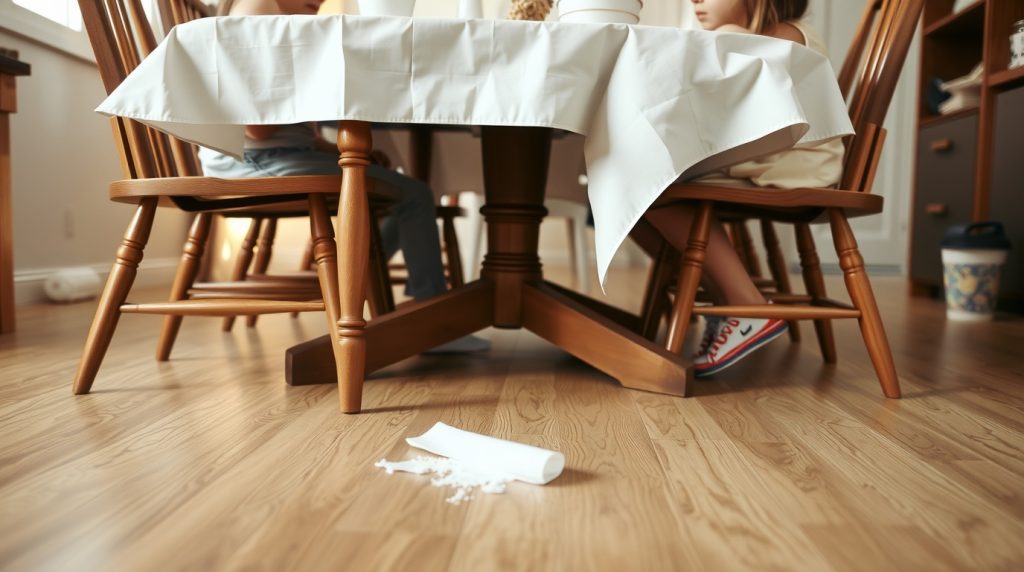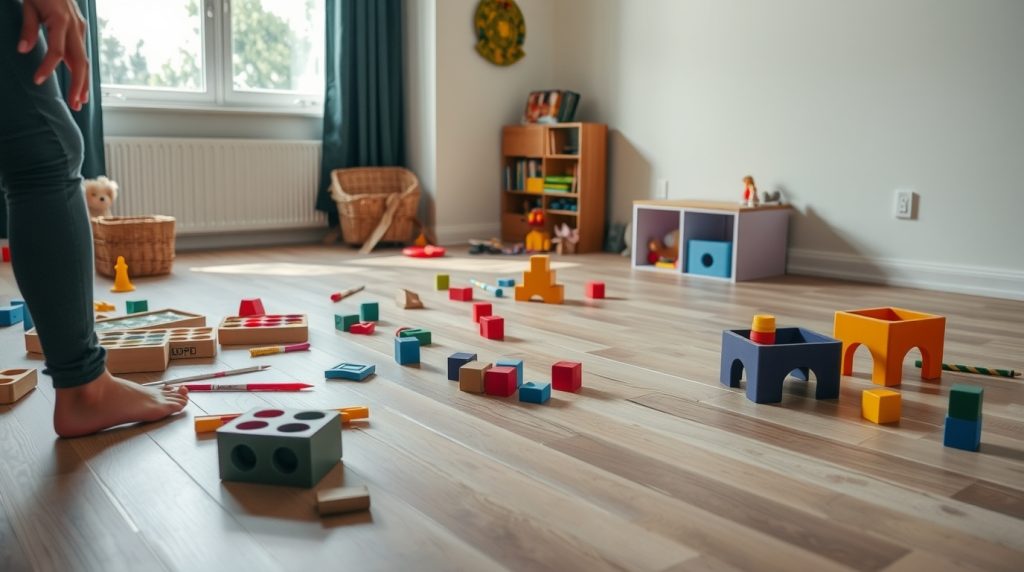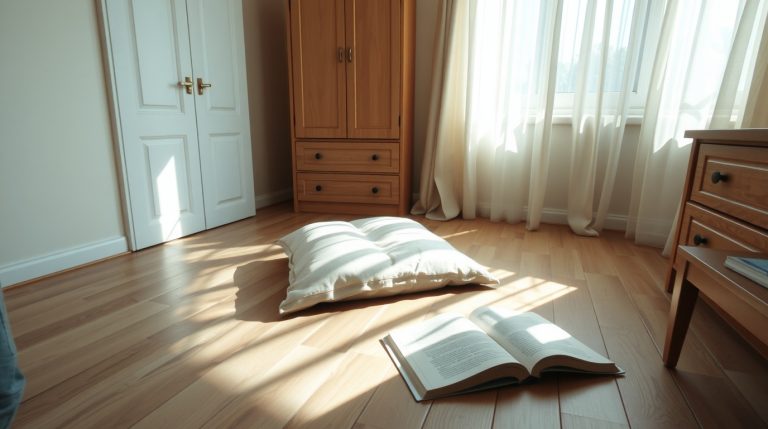Are you looking for the best chemical-free flooring for your home? Many families now choose chemical-free flooring to create a healthier living space. Chemical-free flooring isn’t just a trend—it’s an important choice for clean indoor air, fewer allergies, and safer spaces for babies and children. This guide shows why chemical-free flooring matters, how to find real chemical-free flooring, and what options are best for your family.
What Is Chemical-Free Flooring?
Chemical-free flooring is made without harmful chemicals like VOCs, phthalates, or formaldehyde. Choosing chemical-free flooring means picking floors that don’t release dangerous substances into the air. This makes chemical-free flooring better for everyone, especially children and people with allergies.
Common chemicals found in regular floors (not chemical-free flooring):
- VOCs (volatile organic compounds)
- Phthalates (make plastic floors softer)
- Formaldehyde (in some adhesives and finishes)
These chemicals can cause headaches, breathing problems, and allergies. For a safe home, choose non-toxic vinyl flooring, low VOC flooring, or certified chemical-free flooring like Flornano Self-Sanitising Vinyl.
Why Is Chemical-Free Flooring Important for Families?

- Babies, children, and pets are sensitive to the air quality in your home.
- Chemical-free flooring lowers the risk of asthma, allergies, headaches, and sleep issues.
- Families with chemical-free flooring feel better, miss fewer days from illness, and enjoy peace of mind.
- Allergy-friendly flooring and safe flooring for babies make life easier for anyone with sensitivities.
Tip: Always look for FloorScore or GreenGuard certification before buying chemical-free flooring. See also: Why Flornano Self-Sanitising Vinyl Is the Healthiest Flooring for Modern Homes
Types of Chemical-Free Flooring for Health-Conscious Homes

Non-Toxic Vinyl Flooring
- Non-toxic vinyl flooring is a top chemical-free flooring choice.
- Look for FloorScore or GreenGuard logos for chemical-free flooring.
- Flornano Self-Sanitising Vinyl is certified chemical-free flooring.
- Non-toxic vinyl flooring is easy to install and keep clean.
Natural Hardwood & Bamboo
- Choose FSC-certified or naturally finished wood for chemical-free flooring.
- Select low-emission adhesives and finishes for true chemical-free flooring.
- Bamboo flooring is sustainable and naturally fights germs.
Cork and Linoleum
- Cork and linoleum are natural, allergy-friendly, and chemical-free flooring options.
- Linoleum is made from linseed oil—not plastic.
- Cork is soft, quiet, and perfect for playrooms.
Other Safe Flooring: Ceramic Tile & Polished Concrete
- Ceramic tile does not emit chemicals, making it a chemical-free flooring option.
- Use low VOC grout with tile for best results.
- Polished concrete can be sealed for safe, chemical-free flooring in modern homes.
How to Choose Real Chemical-Free Flooring
- Always look for FloorScore, GreenGuard, or similar certifications on chemical-free flooring.
- Ask for emission test results or certifications to verify chemical-free flooring claims.
- Don’t trust “eco-friendly” labels alone—ask for proof of chemical-free flooring.
- Read ingredients and safety sheets for flooring products.
- See also: Types of Flooring in Singapore: Marble, Vitrified Tiles, Vinyl Compared
Pro Tip: Not sure if it’s chemical-free flooring? Ask the installer or brand about the adhesives and finishes used.
Frequently Asked Questions: Chemical-Free Flooring
Chemical-free flooring has no harmful VOCs, phthalates, or formaldehyde. Look for trusted certifications like FloorScore or GreenGuard.
Yes! Chemical-free flooring reduces allergy and asthma risks and helps keep your home’s air clean.
No. Some “eco” floors still use chemicals. Always check that flooring is truly chemical-free before you buy.
Yes. Chemical-free flooring means less dust and fewer irritants in the air.
Yes! Many chemical-free flooring options like non-toxic vinyl flooring, tile, and linoleum work great in wet areas.
Use a mild soap and water. No need for harsh cleaners—this helps keep your chemical-free flooring safe.
What To Do Next?
Chemical-free flooring is a must-have for a healthy family home. It protects you from harmful chemicals, keeps your air clean, and looks great in every room. Ready for safer, chemical-free flooring? Explore certified chemical-free flooring, contact our team, or share this article with someone who wants a healthier home.






